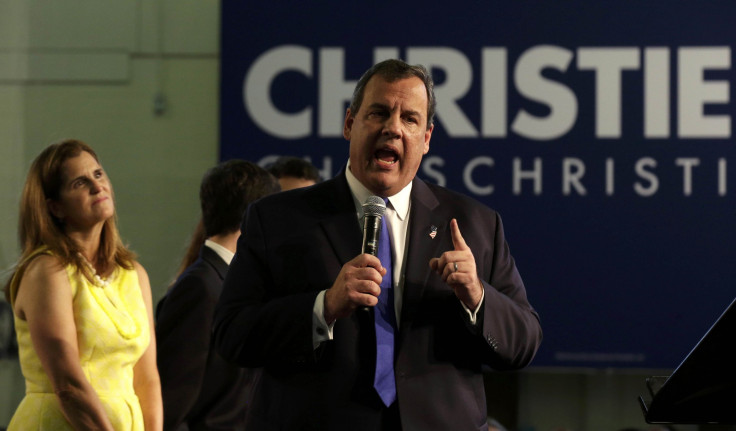Election 2016: Chris Christie Hopes New Jersey Formula Still Works; Town Halls, Blunt Talk, Personal Bio

WASHINGTON -- As Chris Christie launched his presidential bid Tuesday, it looked like one of the more than 130 town hall meetings he’s held in his home state. A stage was erected in the middle of a school gymnasium. There were no teleprompters. And he started off by telling the story of his father’s rise from low-income Newark to college-educated accountant.
And for a good reason. It’s the formula that has worked for Christie so far, which he's going to try to ride to victory in the Republican primary. But it’s also a formula that no longer wins the support of New Jersey voters. "I'm not looking to be the most popular guy who looks in your eyes, figures out what you want to hear, says and does something else,” the governor said in his announcement speech at his high school alma mater, Livingston High School in Livingston, New Jersey. He promised "a campaign without spin or pandering or focus-group-tested answers."
There is a basic blueprint to how Christie conducts these meetings: Start with a personal story. Explain that he was raised to tell the truth. Talk about policy issues. Take questions from the audience -- which have sometimes exploded into his most replayed exchanges. “If you give it, you are going to get it back,” he always warns. And conclude with a tale of his mother requesting that he leave nothing unsaid.
The town hall model puts on display Christie's most advantageous attributes: His exceptional ability to tell a story or a joke, his verbal sparring with opponents and his claim to offer unfettered access to his thoughts. Christie can argue he's accessible and transparent, while attacking his opponents for giving scripted speeches.
Christie, 52, used this approach to get elected, campaigning across New Jersey in 2009. He used the formula to stay in office, visiting dozens of cities across the state during his first term. His office made the town halls a central part of his narrative. Every explosive encounter was plastered across the Internet. Staffers maintained a YouTube channel to host the video of each one of those encounters.
And now his campaign says he’s going to use it in New Hampshire. Christie heads to the Granite State on Tuesday evening, hours after his announcement, to conduct his first official presidential campaign town hall.
But that formula seems to have hit a snag in New Jersey. In April, Christie appeared ready to reignite his use of town hall meetings to get New Jersey voters on board. He promised a town hall every week through June. But only a few weeks later, indictments were handed down in the Bridgegate scandal. And there haven’t been any town halls since.
"I got tired of it, I'm just being honest with you. I got tired of it, so I didn't do it," Christie said during a press conference last week when asked about the lack of town hall meetings. “I just got tired of it during that period of time and I had a lot of other things I was doing, I was getting tired.”
And his favorability numbers are suffering in New Jersey. Christie has been upside-down -- meaning his unfavorable numbers are higher than his favorable numbers -- since October. And the gap is only getting worse, with the Rutgers Eagleton poll finding Christie at only 38 percent favorable compared to 48 percent unfavorable.
The New Jersey formula may have passed its sell-by date.
© Copyright IBTimes 2025. All rights reserved.






















